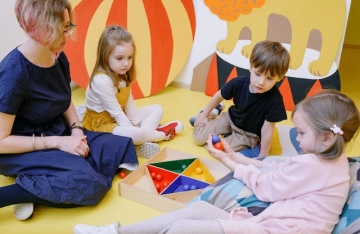A recent study shows that today’s school-going kids are showing precisely the same level of anxiety that used to be demonstrated by mental health patients in 1950. What is the reason for such a pressure today’s kids are finding themselves under? Are we not doing good as parents? Is it common in the 21st century or we just don’t have any control over how we want the things to go for our kids? Today’s parents and schools need to comprehend the fact that anxiety issues have become very common in today’s kids, but they can be treated. Yes, we can put our kids out of this misery.
The behavioral symptoms of a great many numbers of children were analyzed only to find that the number of normal kids is now far less than them. It’s that common. I was reading an article that was kinds of a mix up of a number of research papers that suggested why there was a hike in the depression among adolescents. It also comprised some of the most dreadful reasons for that as well as the steps a school or household should take to assist kids’ mental health. For instance, the top 10 schools in Jaipur have full-time psychologists who are always ready to have a conversation with troubled kids.
These were the top reasons found to trigger anxiety in today’s students:
- Excess Use of Electronics
Before the electronics revolution, kids used to convey their emotions, whether they were about harassment, sadness, loneliness, boredom, or happiness. But as the electronic devices, especially the big-screen ones came into existence, the kids found an escape, an unhealthy hideout from their problems and emotions in them. They got completely immersed in TVs, smartphones, and video games. Five thousand friends on Facebook and two million followers on Instagram can still not match five friends in real life. Today’s kids are spending their time more in-room than outside.
- Happiness is not Important All the Time
Being happy is good. And everyone should remain satisfied. But, that should not always be our motto. Because sooner than later that happiness will be transformed into pleasures. The extent that the need for being happy is emphasized in our culture is ridiculous. Parents keep thinking that they should not let their kids anything else than keeping them happy. Whenever they see a slight change in their behaviour, they get paranoid and start doing the things their kids want so they don’t show any tantrum. That’s utterly wrong. They are just depriving their kids of all other kinds of emotions.
- Expecting Unrealistic Things from Kids
Teachers from many CBSE schools in Jaipur are now trying to consult parents about how should they act around their kids. They are trying to tell them that the mental and physical level of all kids is different. And, they should not put an unrealistic expectation on their kids. Motivation is good but unrealistic expectation raises pressure on children and they also put them in a state of depression. You should not always be saying to your kids that “You must have to get the first rank in the class” Or “If you can’t pass this class with 95% marks, don’t show us your face.” If you do that, you are just making your kids more and more depressed. Why do this with your own kids?
- Parents are Following the Rat Race Like Blind People
It has been analyzed that today’s parents don’t act like their parents used to. They are ready to spoon-feed their kids. They will go to any lengths to make their children’s way as comfortable as possible. For example, they will work day and night to hire tutors for them, they will pay for a list of classes, and they will burden them down with an unlimited number of lessons. It sabotages their kids’ success in two ways. First, they feel an immense pressure to achieve an unrealistic amount of success. Second, they begin to get scared of the sudden challenge life puts before them.
So what to do? It looks like the amount of depression today’s teenagers are experiencing, was entirely created by us. And only we can find a solution to that. We need to focus more on making our children live more in the real world than that of the digital world. We need to tell them the value of real friends rather than the digital ones.




